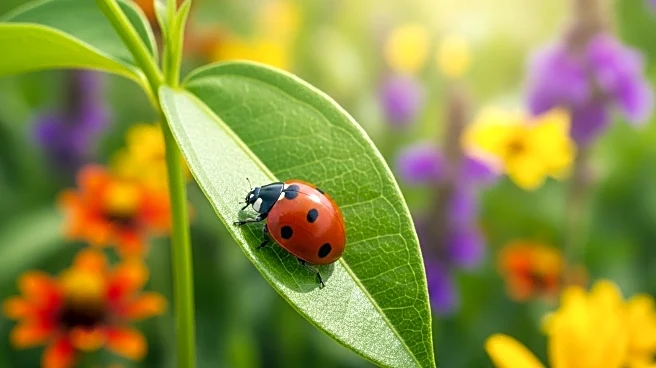What is the story about?
What's Happening?
Farmers across Europe are increasingly adopting integrated pest management (IPM) techniques to reduce reliance on chemical pesticides, which pose risks to human health and the environment. This approach, supported by the EU-funded initiative IPMWORKS, involves using natural processes and biological controls, such as ladybirds and beneficial fungi, to manage pests. The initiative aims to promote healthier crops and reduce pesticide use without compromising profits. Despite the mandatory adoption of IPM in the EU since 2014, many farmers have been slow to transition, but the IPMWORKS network is helping to change that by connecting farmers and providing resources and training.
Why It's Important?
The shift towards integrated pest management is significant as it addresses the environmental and health concerns associated with chemical pesticides, which can contaminate soil, water, and air, and harm biodiversity. By reducing pesticide use, IPM contributes to cleaner water, healthier soils, and increased biodiversity, while also offering economic benefits to farmers through cost-effective pest control. The initiative highlights the potential for sustainable farming practices to protect the environment and maintain food security, presenting IPM as an economic opportunity rather than a constraint.
What's Next?
The success of IPMWORKS suggests that scaling up IPM practices could lead to a substantial reduction in pesticide use across Europe, potentially achieving a 50% reduction without compromising food security. However, further efforts are needed to encourage more farmers to adopt these methods, including financial incentives and changing perceptions about the economic viability of IPM. The initiative continues to provide training and resources to support farmers in transitioning to sustainable practices.
Beyond the Headlines
The adoption of integrated pest management represents a broader shift towards sustainable agriculture, emphasizing the importance of balancing environmental protection with economic viability. This approach not only benefits farmers but also contributes to long-term environmental health and food security, highlighting the interconnectedness of agricultural practices and ecological well-being.















